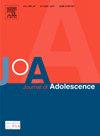Class Dismissed: Examining Social Class Discrimination and Academic Achievement Among Adolescents
Abstract
Introduction
Economic inequality is rising around the globe. Social class includes income, education, and occupation, and is strongly tied to academic achievement. However, we do not yet know how the discrimination that adolescents experience because of their social class is associated with academic achievement. To address this knowledge gap, we examined the association between social class discrimination and academic achievement among adolescents.
Methods
Social class discrimination was measured with an adapted scale that was validated. The scale addressed overt and subtle forms and multiple sources, such as peers, school personnel, and store clerks. Data were collected in 2022. Participants included 1678 adolescents (42.61% cisgender girls) aged 13–18 years (Mage = 15.97) in the United States. Social class was measured with maternal education, a common indicator for adolescents. The sample included 49.2% whose mothers had earned less than a college degree.
Results
Hierarchical regression analyses indicated that social class discrimination was negatively associated with academic achievement, even after controlling for social class, age, and race/ethnicity. Moderation analyses revealed that the associations differed by age and social class. Effects were stronger for younger adolescents ( < age 15) than older adolescents ( > age 17) and among adolescents more advantaged in social class than those who were disadvantaged.
Conclusions
Social class discrimination was associated with academic achievement, even after controlling for social class. Findings offer the field a new mechanism for disrupting the strong association between social class and academic outcomes. Future research should consider how to develop programs that eliminate social class discrimination.

 求助内容:
求助内容: 应助结果提醒方式:
应助结果提醒方式:


